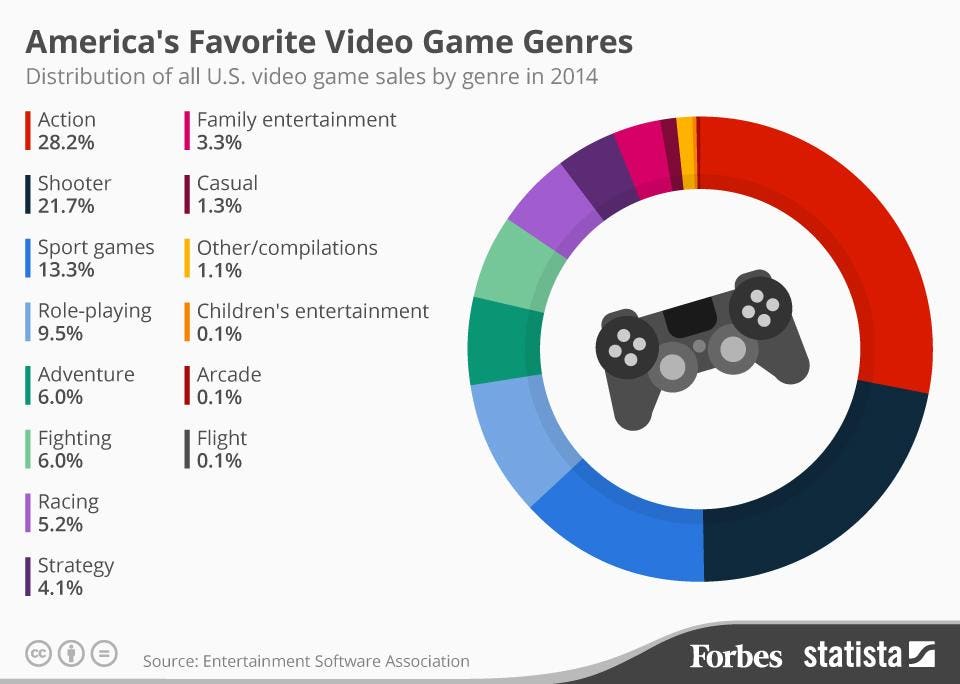Computer gaming has evolved dramatically over the decades, offering a diverse universe of genres. Whether you’re a casual player or a hardcore gamer, there’s something for everyone. In this article, we’ll explore the top genres of computer games to help you discover what might suit your taste, learn what makes each genre unique, and find some standout titles you might want to try.

1. Role‑Playing Games (RPGs)
Role‐Playing Games (RPGs) are all about immersion. You assume the role of a character (or group of characters), often in a fantasy, sci‑fi, or historical world. Key features include character development, narrative choices, and exploration.
- Open‑world RPGs: You roam freely, completing main quests and side content (e.g. *The Witcher 3*, *Skyrim*).
- JRPGs: Japanese style, turn‑based or strategic combat, rich stories (e.g. *Persona*, *Final Fantasy*).
- Action RPGs: Real‑time combat, reflexes matter (e.g. *Dark Souls*, *Diablo*).
Why try them? RPGs let you make choices that shape the world, build your character, and immerse yourself in another life.
2. First‑Person Shooters (FPS) & Action
FPS games put you in the thick of the action, seeing through the eyes of the protagonist. Often fast‑paced, skill‑based, with strong emphasis on reflexes and aim. Examples include both military‑style shooters and sci‑fi variants.
- Competitive FPS: Multiplayer deathmatches, ranked play (e.g. *Counter‑Strike*, *Valorant*).
- Narrative FPS: Story‑driven campaigns (e.g. *Bioshock*, *Half‑Life*).
- Sci‑fi / futuristic shooters: As weapons, environments bend the rules (e.g. *Halo*, *Titanfall*).
These games are great if you like precision, quick decisions, and high adrenalin moments.
3. Strategy Games
If you prefer planning, thinking ahead, and outsmarting your opponent, strategy games are ideal. They come in several sub‑genres.
- Real‑Time Strategy (RTS): Manage resources and armies in real time (e.g. *StarCraft II*, *Age of Empires*).
- Turn‑Based Strategy (TBS): Players take turns, emphasizing tactics (e.g. *XCOM*, *Civilization*).
- 4X Games (eXplore, eXpand, eXploit, eXterminate): Deep strategic play, often grand scale (e.g. *Endless Legend*, *Stellaris*).
Strategy games reward patience, planning, and the ability to anticipate rivals’ moves.
4. Simulation & Sandbox
Simulation games mimic real life or imagined systems; sandbox games give you tools to build, modify, explore without strict goals. They often overlap.
- Life / Social Sims: Managing lives, relationships, careers (e.g. *The Sims*, *Animal Crossing*).
- Sandbox creativity: Building, crafting, world‑modification (e.g. *Minecraft*, *Terraria*).
- Vehicle / Flight / City Sims: Realistic controls and/or management (e.g. *Cities: Skylines*, *Microsoft Flight Simulator*).
These genres are perfect if you want freedom, creativity, or a relaxed pace.
5. Indie & Experimental Games
Indie games are made by smaller teams or individuals; experimental games push boundaries, often innovating in mechanics, storytelling, or visuals.
- Puzzle / Minimalist: Clean design, clever concepts (e.g. *Limbo*, *Fez*).
- Artistic / Narrative‑Driven: Strong story, unique style (e.g. *Journey*, *What Remains of Edith Finch*).
- Hybrid Genres: Mix of genres in unexpected ways (e.g. *Undertale*, combining RPG & bullet‑hell elements).
Indie and experimental games are great if you’re seeking something different or personally meaningful.
6. Horror & Survival
For those who like their gaming with a dose of tension: horror and survival genres test not just skill but nerves, resource‑management, and decision‑making under pressure.
- Survival horror: Limited supplies, atmosphere, slow build of dread (e.g. *Resident Evil*, *Silent Hill*).
- Open world survival: Gathering, crafting, and surviving harsh environments (e.g. *Rust*, *The Forest*).
- Psychological horror: Mind games, ambiguous reality (e.g. *Amnesia: The Dark Descent*, *Layers of Fear*).
If you like suspense, challenge, and immersion, horror/survival can be deeply rewarding.
7. Multiplayer & Online Social Games
These games revolve around interaction: cooperating, competing, or just hanging out with other players.
- MMORPGs: Massive worlds, persistent characters (e.g. *World of Warcraft*, *Final Fantasy XIV*).
- Battle Royale: Last‑man‑standing formats (e.g. *Fortnite*, *Apex Legends*).
- Co‑op / Social Party Games: Casual, party‑fun, or co‑operative missions (e.g. *Among Us*, *Overcooked*).
These encourage social dynamics, teamwork, and often have long life thanks to communities.
Conclusion
Exploring different game genres can open up new experiences, challenge you in fresh ways, and let you discover what truly excites you as a gamer. Whether you want deep stories, intense action, creative freedom, or social connections, there’s a genre tailored for you. Try one you haven’t before—you might find your next favorite game!